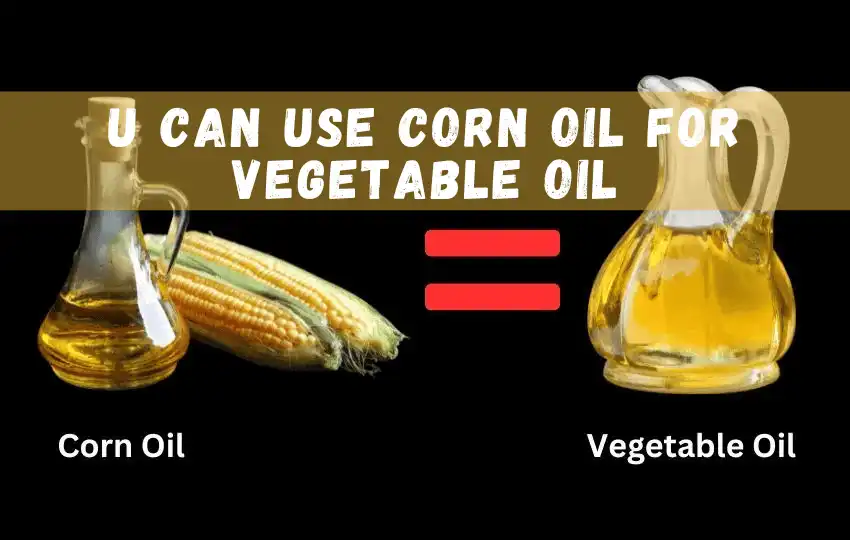As an experienced home cook and chef, I know how frustrating it can be to realize halfway through a recipe that you’re missing a key ingredient.
It’s especially frustrating when you don’t have time to go to the grocery store or don’t want to ruin the flow of your cooking mojo.
A frequent question I get asked is whether you can substitute corn oil for vegetable oil in recipes.
If the answer is yes, then some things you should keep in mind before making the switch.
In this blog post, I’ll provide a detailed guide on how to successfully substitute corn oil for vegetable oil, so you can keep cooking without missing a beat.
What are the differences between corn oil and vegetable oil?
Corn oil and vegetable oil are two popular types of cooking oil that offer different flavors, nutritional values, and smoke points.
Corn oil, as the name suggests, is derived from the kernels of maize plants and has a mild, nutty taste. It contains high amounts of unsaturated fats, such as linoleic acid, which are beneficial for heart health and cholesterol levels.
Corn oil also has a higher smoke point of 450°F, making it ideal for deep-frying, sautéing, roasting, and baking.
In addition, vegetable oil is a generic term that refers to any plant-based oil, such as canola, soybean, sunflower, safflower, palm oil, or a blend of them.
Depending on the type of vegetable oil, it may have a neutral or distinct flavor, such as nutty, buttery, or grassy.
Vegetable oil typically contains a mix of saturated and unsaturated fats, including omega-3 and omega-6 fatty acids. It also has a smoke point that varies from 350°F to 450°F depending on the type and quality of the oil.
Can you substitute corn oil for vegetable oil in a recipe?
The answer is yes; you can substitute corn oil for vegetable oil in most recipes without significantly altering the taste or texture.
Both oils are liquid at room temperature, have a similar viscosity, and are neutral in flavor.
Nonetheless, you may notice some differences in the final product, especially if the recipe calls for a large amount of oil or a specific type of vegetable oil with a distinct flavor.
For sample, if you are making a stir-fry dish that requires soybean oil, using corn oil may make the dish taste slightly different due to the nuttier taste of corn oil.
Similarly, if you are making a salad dressing that requires light olive oil, using corn oil may result in a less fruity and more buttery flavor.
However, most baked goods, fried foods, and sauces are flexible enough to adapt to different oils, so don’t be afraid to experiment.
How do you measure corn oil for a recipe?
If your recipe calls for an exact amount of vegetable oil, you can use the same amount of corn oil as a substitute.
For instance, if your recipe requires one cup of vegetable oil, you can replace it with one cup of corn oil.
However, keep in mind that corn oil may have a slightly different density and weight than vegetable oil, so it’s best to measure it by volume rather than weight.
If your recipe calls for vegetable oil by weight, you can use the conversion factor of 0.92 to get the equivalent weight of corn oil.
This means that one cup of vegetable oil (weighing 218 grams) is equal to 200 grams of corn oil. Similarly, one tablespoon of vegetable oil (weighing 14 grams) is equal to 13 grams of corn oil.
What are some other alternatives to vegetable oil?
If you don’t have corn oil or vegetable oil on hand, or if you want to try a different oil for your recipe, there are several other options to consider. Some of the most common alternatives to vegetable oil are:
– Peanut oil: good for frying, sautéing, and Asian-inspired dishes
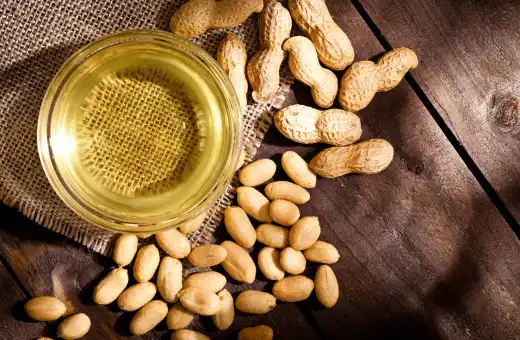
– Coconut oil: good for baking, smoothies, and vegan recipes
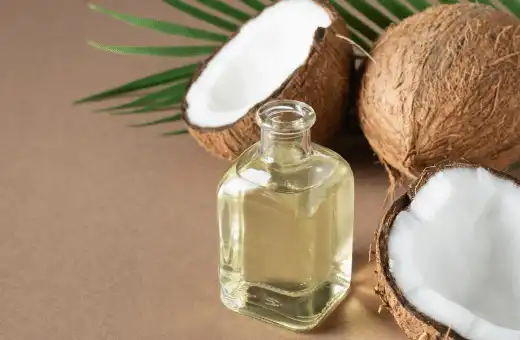
– Avocado oil: good for high-heat cooking, salad dressings, and dipping sauces
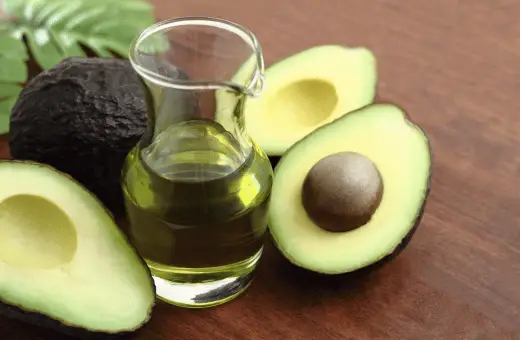
– Grapeseed oil: good for dressings, marinades, and sautéing
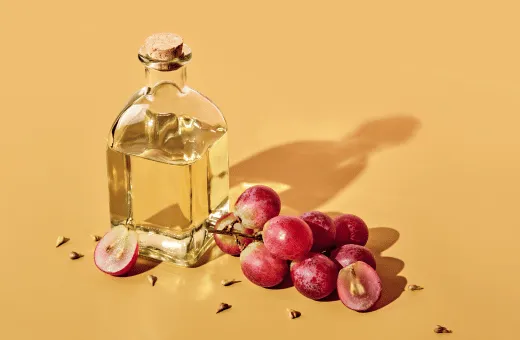
– Butter or margarine: good for baking, sautéing, and flavoring

What is corn oil, and what does corn oil taste like?
Corn oil is a kind of vegetable oil that is extracted from the germ of corn kernels. This is a light yellow oil with a mild flavor that is often used in cooking and baking.
Corn oil is considered to be a healthy oil option because it is high in polyunsaturated and monounsaturated fats, which can help reduce cholesterol levels and low risk of heart disease.
When used in cooking, corn oil has a neutral flavor that does not overpower other ingredients, making it a versatile ingredient in many dishes.
Overall, the taste of corn oil is mild and subtle, making it a popular choice for many different types of recipes.
Uses of corn oil
Corn oil is a versatile cooking oil that has many uses in the kitchen. Here are some common uses of corn oil:
1. Frying: Corn oil has a high smoke point, which makes it ideal for frying foods like chicken, french fries, and onion rings.
2. Baking: Corn oil can be used in baking to make cakes, cookies, and other baked goods.
3. Salad dressings: Corn oil can be used as a base for homemade salad dressings.
4. Marinades: Corn oil can be used in marinades for meat, poultry, and fish.
5. Sauteing: Corn oil can be used for sauteing vegetables and other ingredients.
6. Popcorn: Corn oil is often used for popping popcorn because it has a neutral flavor that doesn’t overpower the taste of the popcorn.
7. Mayonnaise: Corn oil is a common ingredient in homemade mayonnaise.
8. Grilling: Corn oil can be used for grilling meats and vegetables.
Can you use corn oil for baking?
Yes, corn oil can be used for baking. This vegetable oil is obtained from the germ of corn and is rich in polyunsaturated fatty acids, providing a more balanced diet than other types of oils.
Its higher smoke point and neutral flavor make it ideal for baking cakes, muffins and pastries.
Corn oil also adds a light texture to baking recipes, as opposed to heavier oils such as olive oil or coconut oil.
Additionally, its lack of flavor makes it an excellent choice when preparing food that requires different flavors to shine through without being overwhelmed.
Can you substitute corn oil for vegetable oil in brownies?
Although corn oil and vegetable oil both contain fat, they are not interchangeable in all recipes. When it comes to baking brownies, substituting corn oil for vegetable oil could alter the texture of the final product.
Corn oil is much lighter than vegetable oil which could make the brownies more dense and heavy.
Additionally, corn oil has a higher smoke point of 450 degrees Fahrenheit. This means that when baking with corn oil, your oven temperature will need to be adjusted down from what is called for in the recipe.
Furthermore, corn oil has a distinctive flavor that could detract from the richness of chocolate or other flavors used in brownie recipes.
If you’re looking for an alternative to vegetable oil for baking brownies, try using softened butter or melted coconut oil.
can I use vegetable oil rather than corn oil in baking
Yes, you can use vegetable oil instead of corn oil in baking. Vegetable oils are derived from different sources, such as soybeans, rapeseed, and sunflower seeds.
They have a neutral taste and higher smoke points, making them ideal for baking.
Additionally, vegetable oils are much lower in saturated fats than other common baking oils, such as coconut or palm oil.
Depending on the particular recipe and desired results, some vegetable oils, such as olive oil, may produce more flavorful results.
However, when substituting vegetable oil for corn oil in baking recipes, it’s important to keep in mind that corn oil has a higher fat content than many of the less expensive vegetable oils.
As a result, baked goods may not be as moist and tender as they would with the higher fat content of corn oil.
corn oil vs. vegetable oil for frying
Corn oil is obtained from the germ of corn kernels and is high in polyunsaturated fat. This fat helps create a light and crispy batter for fried foods.
Corn oil also has a higher smoke point of about 450 degrees Fahrenheit, which prevents it from breaking down during the cooking process and reduces the risk of smoking or burning.
Additionally, corn oil is much cheaper than other types of oils, making it an ideal choice for those on a budget.
However, some people avoid using corn oil due to its high-fat content. As a result, many opt to use vegetable oil instead.
Vegetable oil is made from vegetable fats that are refined and processed in liquid form. Its neutral flavor makes it perfect for dishes where you don’t want the taste of the oil to overpower other ingredients.
It also has a slightly higher smoke point than corn oil at 490 degrees Fahrenheit, meaning there’s less risk of burning during cooking.
The downside to vegetable oil is that it can be more expensive than corn oil, depending on the type you use.
Some types, such as olive or avocado, may be pricier depending on where you purchase them from. Additionally, many people opt not to use vegetable oils due to their highly processed nature, as well as the potential health risks associated with some types, such as soybean or canola oils.
In conclusion, when deciding between corn oil or vegetable oil for frying, it really comes down to personal preference, as both have their benefits and cons depending on your needs or budget.
Discover more: Best safflower oil substitutes & way to use
The bottom line is that can you substitute corn oil for vegetable oil
In conclusion, substituting corn oil for vegetable oil is possible and relatively easy to do.
However, some things you should remember, such as the flavor profile, measurement adjustments, smoke point, and potential health benefits.
By following these suggestions and staying mindful of your cooking process, you can successfully use corn oil as a substitute without compromising the quality of your dishes.
Remember, cooking should be enjoyable and stress-free, so don’t let a missing ingredient derail your culinary adventures!
FAQs on can you substitute corn oil for vegetable oil
Q1. What is similar to vegetable oil?
Veget oil is similar to other kinds of oils derived from plants, such as canola, sunflower, and safflower oils. All these types of oil are composed mainly of triglycerides—three fatty acids attached to a glycerol molecule—and contain no cholesterol. They also provide essential vitamins and minerals necessary for healthy diets and lifestyles.
Other popular plant-based oil varieties include corn oil, soybean oil, peanut oil, and sesame seed oil.
Q2. What is similar to corn oil?
Sunflower oil, soybean oil, canola oil and safflower oil are all similar to corn oil. All of these oils are plant-based vegetable oils that can be used for cooking, baking and other culinary applications.
They have a mild flavor and light color, making them suitable for many recipes. They also offer health benefits such as containing essential fatty acids and being low in saturated fat.
Q3. Is corn oil the same as vegetable oil?
No, corn oil and vegetable oil are not the same. While both are derived from plants, they are sourced from different types of vegetation. Corn oil is produced from the germ of the kernel, while vegetable oil is generally produced from the seeds or fruit of plants, including cottonseed, soybean, safflower, olive, and sunflower.
In addition to differences in their source materials, corn and vegetable oils also differ in their nutritional profiles. Corn oil has a higher amount of polyunsaturated fats than vegetable oils and contains more Vitamin E as well. It is also suggested that corn oil may have a lower smoke point than many other types of plant-based oils.
Q4. Does corn oil fry like vegetable oil?
Corn oil has a high smoking point than vegetable oil and is ideal for deep-frying. It has a soft flavor, which makes it perfect for frying food with more delicate flavors. When compared to vegetable oil, corn oil does not have as many polyunsaturated fats; however, it does contain certain monounsaturated fats that are beneficial for health.
Additionally, corn oil contains a higher amount of Vitamin E, which is an antioxidant that helps protect cells from damage and can help lower cholesterol levels. For these causes, it is often preferred over vegetable oil when deep-frying foods.
Corn oil also tends to be less costly than other types of cooking oils, making it an attractive option for those who are looking to save money in the kitchen.
Q5. Can I use olive oil rather than vegetable oil?
Olive oil is a good alternative to vegetable oil in many recipes. It has a distinctive flavor that adds unique depth and complexity to dishes. Not only does olive oil have a delicious flavor, but it also offers health benefits as well.
Olive oil contains high monounsaturated fats, which can help reduce inflammation and improve heart health when consumed in moderation. Additionally, olive oil contains compounds such as polyphenols, which are antioxidants that can help reduce the risk of chronic diseases.
As with all cooking oils, it’s important to use extra virgin or cold-pressed olive oil for maximum health benefits.

